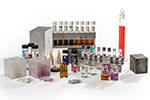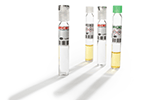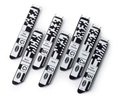-
Products
- Lab Instruments
-
Lab Meters and Probes
Calibration Standards Sension+ Meters and Probes
- Chemistries, Reagents, and Standards
-
Online Analysers
Ammonium Analysers Chlorine DioxideChlorine Analyzers
- CL17sc
- CL10sc Amperometric
- 9184 sc Amperometric
- Ultra Low Range CL17sc Colorimetric Chlorine Analyser
EZ Series Analysers- Iron
- Aluminium
- Manganese
- Phosphate
- Chloride
- Cyanide
- Fluoride
- Sulphate
- Sulphide
- Arsenic
- Chromium
- Copper
- Nickel
- Zinc
- Ammonium
- Total Nitrogen
- Total Phosphorus
- Phenol
- Volatile Fatty Acids
- Alkalinity
- ATP
- Hardness
- Toxicity
- Sample Preconditioning
- Boron
- Colour
- Nitrate
- Nitrite
- Silica
- Hydrogen Peroxide
- EZ Series Reagents
- EZ Series Accessories
- EZ sc Series Inorganics
- EZ sc Series Metals
- EZ sc Series Nutrients
-
Online Sensors and Controllers
Digital Controllers (Transmitters) Controllers (Analogue)
- SC4500
- Orbisphere 366x Ex
- Orbisphere 410/510 Carbon Dioxide
- Orbisphere 410/510 Oxygen
- Orbisphere 410/510 Ozone
- Orbisphere 51x Hydrogen
pH & ORP Sensors- 1200-S ORP
- 1200-S pH
- 12mm pH/ORP
- 8362 sc High Purity
- Combination pH/ORP
- Differential pH
- Digital Differential ORP
- Digital Differential pH
- LCP pH
Conductivity Sensors- 3400 Analogue Contacting
- 3400 Digital Contacting
- 3700 Analogue Inductive
- 3700 Digital Inductive
- 3798 sc Electrodeless
- 9523 Cation Conductivity
- 9525 DCCP System
-
Automated Lab Systems
Automatic Laboratory Analyser
- Samplers
- Test Kits & Strips
-
Microbiology
Prepared MediaKits Labware
- Accessories
- Funnels, Pumps & Manifolds
- Microbiology Filters
- Petri Dishes & Accessories
- Sampling Bags
- Vials, Tubes, Bottles & Racks
-
Lab Equipment and Supply
General Lab Consumables Books and Reference MaterialGlassware/Plasticware InstrumentsSafety Equipment Apparatus
- Claros Water Intelligence System
- Electrochemistry
- Parameters
- Industries
- Brands
- Service
- Support
- News & Events
RTC-ALK Software Module
- Overview
- Details
- Downloads
- Similar Products
Product #:
LXZ514 (A)
Unit Price
Contact Hach
Does low pH sometimes inhibit your sludge sedimentation process?
If your biological wastewater treatment routinely underperforms on nitrification, coagulation and/or flocculation, an overly acidic activated sludge environment may be the culprit. You may already dose lime or chalk to maintain carbonate balance, but are you sure you’re achieving the right alkalinity in all flow, temperature and aerated conditions?
Hach’s RTC-ALK Software adjusts the alkalinity of activated sludge to a desired level by adding lime or chalk to the treatment process. The controller can act as a feedback (preferred) or feed forward controller based on an alkalinity measurement and effluent/influent aeration. Combined with RTC-N or RTC-P, RTC-ALK can compensate for the loss of alkalinity caused by the nitrification/denitrification process or the addition of precipitant. Although RTC-ALK is a standardized solution, it includes built-in flexibility to consider varying inflow conditions—including flow, optional pH, conductivity, and/or temperature—and react accordingly.
Claros Process Management solutions for sludge management like RTC-ALK are designed to make the most of your plant’s real-world conditions by transforming every uncertainty into an opportunity for measurement, responsive action, and savings.
- Improved biological health
- Increased visibility





